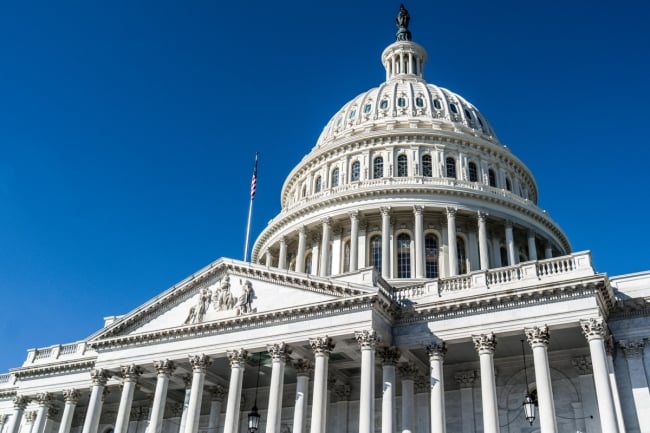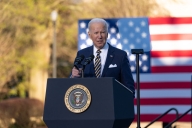You have /5 articles left.
Sign up for a free account or log in.

Getty Images
When California governor Gavin Newsom offered his inaugural state budget, it included a proposal that was familiar to participants in one of the longest-running debates over higher ed policy in Washington.
Newsom, who was elected in November, called for investing $10 million in a data system that would track outcomes in K-12, higher education and the work force. Such a system would allow the state to monitor the success of individual schools in getting students to and through college and into well-paying jobs. His proposal was the latest illustration of how state leaders are looking for workarounds for the current federal ban on collecting student-level data -- a prohibition that has a strong chance of being overturned in the new Congress.
“This proposal out of California is another demonstration of the hunger for higher-quality data to improve decision making and to help students make better choices,” said Mamie Voight, vice president of policy research at the Institute for Higher Education Policy.
Voight and other supporters of a federal student data system to track college outcomes say that demand should inform members of Congress. And after Democrats took the House in November, the prospects of undoing the ban appear much stronger. Some key lawmakers and college groups still have reservations that could create other roadblocks for legislation. But the most influential opponent of a federal data system, Representative Virginia Foxx, is no longer running the House education committee after holding the gavel for the past two years. In 2008, it was Foxx, a North Carolina Republican, herself who wrote the current ban into federal law.
The new chair, Representative Bobby Scott, a Virginia Democrat, last year introduced a proposal to reauthorize the Higher Education Act that would do away with the ban. Supporters say that would allow students to get information on earnings and employment outcomes for colleges and individual programs.
Amy Laitinen, director for higher education at New America’s education policy program, said Democratic control of the House changes the calculus for committee Republicans who were quietly supportive of ending the ban but didn’t want to disagree with the chair.
“I think it makes it easier for those members,” she said.
Foxx and other opponents of a federal data system, which have included private colleges as well as civil libertarians, have raised concerns about student privacy. Senator Lamar Alexander, chairman of the Senate education committee, has expressed similar concerns about tracking information of millions of students who have never applied for federal student aid, although not to the same degree as Foxx and other critics.
“It is clear that students need better information on whether or not college is worth their time and money,” a spokeswoman for Alexander said. “It is very important to develop a consensus on the most appropriate ways to improve information about colleges and universities so students can make more informed decisions about higher education with relevant data and without infringing on their privacy.”
But biggest recent momentum behind legislation to track student outcomes has been in the Senate. A bipartisan group of senators in May 2017 introduced the College Transparency Act, which would direct the National Center for Education Statistics to coordinate with other federal agencies to track graduation, employment and other outcomes for colleges.
Its chief co-sponsors included Utah Republican Orrin Hatch, Massachusetts Democrat Elizabeth Warren, Louisiana Republican Bill Cassidy, and Rhode Island Democrat Sheldon Whitehouse. Fifteen total members eventually signed on, including Texas Republican John Cornyn, until this year the second-ranking GOP senator, and Illinois Democrat Dick Durbin, the minority whip. In the House, 33 members are backing identical legislation.
Although Hatch has since retired from the Senate, Cassidy has made it clear the college transparency bill is his top priority in a reauthorization of the Higher Education Act.
And opposition to expanded federal data collection from within higher ed appeared to soften last year as well. The National Association of Independent Colleges and Universities said it was open to legislation requiring colleges to collect and submit more student data to the federal government, although it remains opposed to a student-level data system.
Craig Lindwarm, assistant vice president for congressional and governmental affairs at the Association of Public and Land-grant Universities, the higher ed group most active in pushing for student-level data, said Scott taking the top spot on the education committee would help the prospects of the College Transparency Act -- especially in light of Foxx’s position on the ban.
“That’s true especially considering where Ranking Member Foxx has been on the bill previously,” he said.
Lindwarm said an update to the Higher Education Act provides the most natural legislative vehicle for the College Transparency Act. But he said if political circumstances allow for the bill to be moved independently, that’s something sponsors would push for.
“The momentum behind the bill is undeniable,” he said. “Everyone recognizes the great need to empower students as consumers so they can make more informed decisions.”








